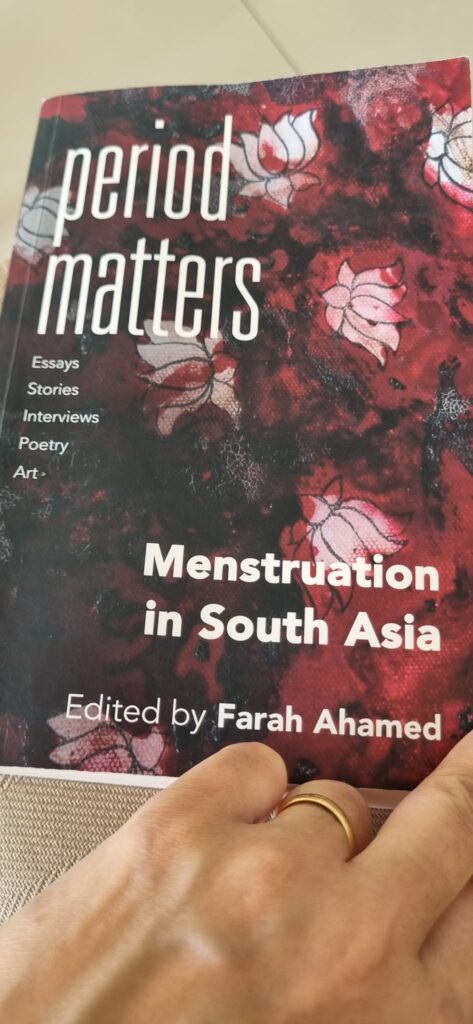Farah Ahamed’s “Period Matters”& International Women’s Day 2023


On International Women’s Day, it is worth reflecting upon this statistic. According to UNICEF’s 2019 Menstrual Hygiene report, 1.8 billion people Menstruation globally and millions of those are unable to exercise their right to good menstrual health and dignity due to discriminatory norms, cultural taboos, poverty and lack of access to basic amenities. Adolescent girls often face stigma and social exclusion during menstruation, resulting in school absenteeism and frequent dropouts. Women with lower literacy levels face additional chronic nutritional deficiencies and health problems. Cumulatively, these practices have far-reaching negative consequences on the lives of girls and women as they restrict their mobility, freedom, choices, affect attendance and participation in school and community life, compromise their safety and cause stress and anxiety.
To put that figure of 1.8 billion in perspective, it is more than the current population of India of 1.4 billion and the approx. 400m in the European Union. Given that this is a 2019 statistic, more menstruating girls have probably been added than those dropping off due to menopause as many countries have younger populations than greying elders. Yet, the topic of menstruation is a taboo topic. Human rights lawyer and writer Farah Ahamed asserts that menstrual dignity is a basic human right.
It is also peculiar that this large chunk of the global population is ignored when it comes to discussing women’s health and designing programmes specific to their needs. Years ago, Dabur launched a campaign promoting its bestselling product Pudin Hara (pearls and liquid) as being an effective cure for period pains. Pudin Hara is an ayurvedic extract from mint leaves. It is usually used for indigestion and other tummy ailments. Unfortunately, the campaign was an utter flop since women’s health especially pertaining to sexual health is taboo. But the fact remains that it is an extremely effective remedy to easing dysmenorrhea. It is definitely preferable to taking allopathic painkillers.
Given that this is the information age, big data and digital technology rules our lives, it is perhaps worth reflecting on this detail shared by Alnoor Bhimani in his essay, “Digitisizing Menstruation: Algorithms for Cleansing Bodies”, included in Period Matters, published by Pan Macmillan India . He is the Professor of Management Accounting and the Director of the South Asia Centre at the London School of Economics and Political Science.
The global market for all digital technology-based products and services focused on women’s health could be worth $60 million by 2027. Although South Asia comprises about a quarter of the world’s female population, at present, ‘femtech’ investments in the region amount to only about 1 per cent. Of 1,323 femtech companies globally in 2021, only 41 were in South Asia. Perhaps this is because less than 10 per cent of individuals in low-income countries can access the Internet, and of the 3.5 billion people without Internet access in the world, South Asian citizens are among the least well served. A further explanation may be that women in developing nations are 34 per cent less likely to have access to the Internet, compared to men. Nevertheless, women who can access digital technologies are increasingly using period tracker apps (PTAs), making them part of a fast-growing femtech product market.
8 March 2023

No Comments